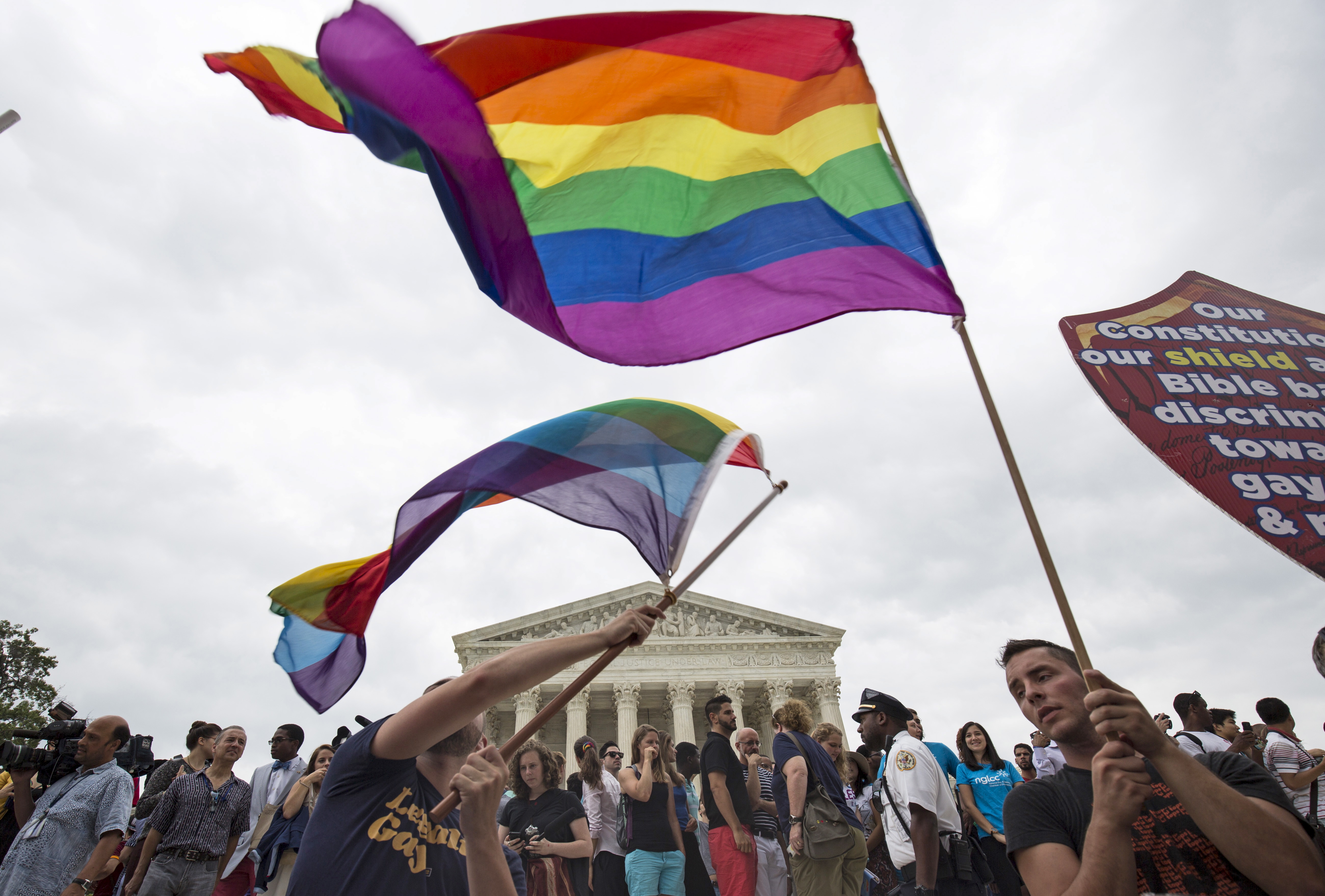The Supreme Court is once again at the center of a fierce national debate, as conservative activists and legal challengers push for a dramatic reversal of the 2015 Obergefell v. Hodges decision that made same-sex marriage legal across the United States. With a right-leaning supermajority now on the bench, LGBTQ+ advocates and families are bracing for what could be the most consequential test of marriage equality in a decade.
A Decade After Obergefell: The Legal Landscape Shifts
It’s been ten years since the Supreme Court declared marriage equality the law of the land, but the fight is far from over. In 2025, at least nine states have introduced or passed legislation aimed at blocking new marriage licenses for LGBTQ people, signaling a renewed effort to challenge the rights secured by
Obergefell.
The latest flashpoint comes from a petition filed by Kim Davis, the former Kentucky county clerk who famously refused to issue marriage licenses to same-sex couples. Davis’s legal team is asking the Supreme Court to reconsider
Obergefell and carve out broad religious exemptions that would allow government employees to deny services to LGBTQ couples.
What’s at Stake: The “Unbreakable Promise” of Marriage Equality
LGBTQ+ advocacy groups, including Lambda Legal, are sounding the alarm. In a statement this week, Lambda Legal’s CEO Kevin Jennings called on the Court to “honor what millions of Americans already know as a fundamental truth and right: LGBTQ+ families are part of the nation’s fabric.” Jennings emphasized that the Supreme Court’s decision is “an unbreakable promise” to same-sex couples and their children, who are now woven into every community in the country.
There are an estimated 823,000 married same-sex couples in the U.S., with nearly one in five raising children under 18. For these families, the prospect of losing federal marriage protections is deeply personal and potentially devastating.
Could Existing Marriages Be Undone?
Legal experts stress that even if the Supreme Court were to overturn
Obergefell, existing marriages would remain valid. The 2022 Respect for Marriage Act requires all states and the federal government to recognize legal marriages of same-sex and interracial couples performed in any state, regardless of future changes in the law. However, new marriages could be blocked in states that pass restrictive laws, creating a patchwork of rights and uncertainty for LGBTQ Americans.
The Court’s Conservative Tilt and Religious Liberty Arguments
Since the
Obergefell decision, the Supreme Court’s makeup has shifted significantly, with three justices appointed by former President Donald Trump and a 6-3 conservative majority. Chief Justice John Roberts, who dissented in
Obergefell, warned at the time that the ruling “creates serious questions about religious liberty.” Justices Clarence Thomas and Samuel Alito have also publicly criticized the decision, fueling speculation that the Court may be open to revisiting the issue.
Davis’s petition leans heavily on these dissents, arguing that government employees should not be compelled to act against their religious beliefs. LGBTQ+ advocates counter that such exemptions would open the door to widespread discrimination and undermine the core promise of equal protection under the law.
Public Opinion and Political Pressure
Despite the legal wrangling, public support for marriage equality remains strong. Recent polls show that over
60% of Americans back the right of same-sex couples to marry, with majority support across nearly every demographic. Still, the shifting legal and political landscape has left many LGBTQ+ families feeling anxious and uncertain about the future.
What Happens Next?
The Supreme Court is expected to decide soon whether to hear the latest challenge to marriage equality. If the justices take up the case, it could set the stage for a blockbuster ruling with far-reaching implications for LGBTQ rights, religious liberty, and the meaning of equal protection under the Constitution.
For now, advocates are urging the Court to uphold the “unbreakable promise” of marriage equality—and warning that the stakes for American families have never been higher.
Sources
1. Protect Our Families—Marriage Equality Is an Unbreakable Promise
2. The Equal Protection Clause Does Not Require States ...
3. Supreme Court formally asked to overturn landmark same-sex ...
4. Gay Marriage - Pro Quotes
5. Will the Supreme Court revisit its ruling on same-sex marriage?
6. Setbacks, triumphs continue in long fight for LGBTQ+ rights
7. Kim Davis's Cert Petition to the Supreme Court - GLAD Law
8. Gay Marriage Showdowns
9. DIGNITY AND SOCIAL MEANING: OBERGEFELL, WINDSOR ...
10. Gay Talk: Protecting Free Speech for Public School Teachers
